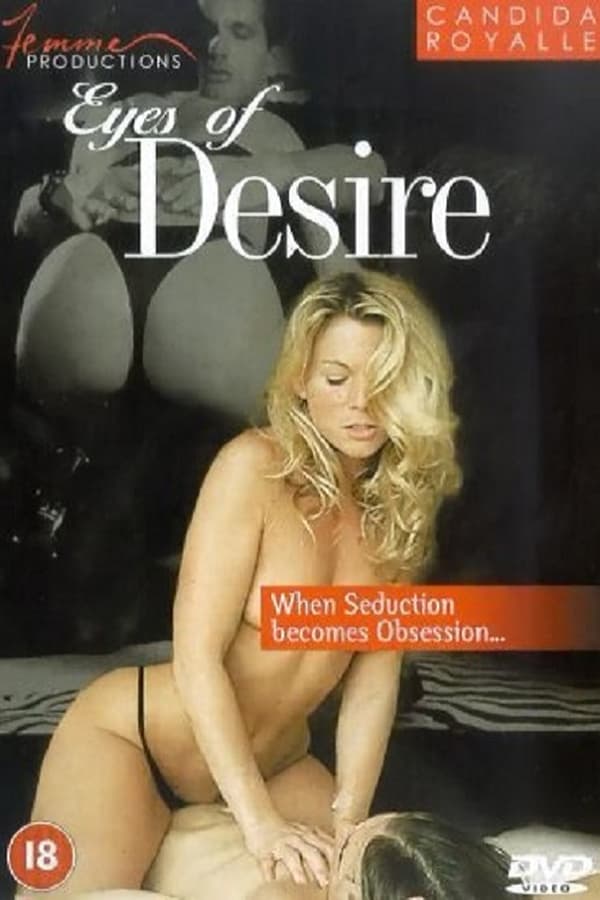Eyes of Desire was, if I’m counting correctly, the twelfth film from Candida Royalle‘s Femme Productions. Royalle was one of the first ‘feminist’ pornographers, and she was far and away the most successful feminist pornographer of the twentieth century. Femme’s first release was in 1984, also titled Femme, Directed by Lauren Niemi, it’s a collection of vignettes, many of which are in the style of erotic (or pornographic) music videos. Femme’s first narrative feature was Three Daughters, released in 1985 and written by Royalle. All of these, and some of the other early films from Femme, are discussed by Linda Williams in Hard Core.

Eyes of Desire was released after that book appeared, which is too bad, since there is probably more to say about it, from a film-studies point of view, than about any of the earlier films. Quite a lot of it has already been said by James Beggan and Scott Allison in their paper “Reflexivity in the Pornographic Films of Candida Royalle” (Sexualities 6 (2003), pp. 301-24). The film is all about ‘scopophilia’: the pleasures of looking, in this case, of looking at people having sex.
I want here, though, to talk about a different aspect of the film: the way the narrative informs our appreciation of the sex scenes, in particular, the way it affects their erotic power.
The best illustration of this is the ‘phone scene’, toward the end of the film. The main character, Lisa, has been staying at the house of her friend Amy. She’s trying to figure out what to do about her relationship with her boyfriend Jamie, in part spurred by an attractive job offer on the east coast. Amy has already introduced Lisa to the telescope she uses to watch the neighbors, and it’s clearly implied that there are a lot of telescopes in these hills, with everyone more or less watching everyone else. Lisa becomes intrigued by an apparently abandoned mansion across the valley, which turns out to harbor a telescope of its own. Not only does it move, suggesting the mansion is not abandoned after all, but it often seems to be pointed at her.
Lisa eventually meets the occupant of the mansion, Daniel, whose father died while it was being built. (Since then, it has been tied up in probate.) Daniel makes it clear that he’s been watching Lisa, and that he is deeply attracted to her. Later that night, Lisa is looking at some of the photographs she has taken for an ad campaign when she gets a call from Daniel. “You know I’m watching you, don’t you?” he says. “Yes”, she replies, telling him when he asks that she doesn’t mind. Indeed, she walks over to the window so he can see her better, and then starts to undress as he ‘orders’ her to do so.
It’s an incredibly erotic scene. One of the things that is so striking about it is that its eroticism isn’t really visual. Oh, Lisa does get naked, but her stripping by itself would not have nearly the same erotic power if not for the narrative context. This is not just limited to the interaction between her and Daniel. It’s also important, it seems to me, what we know about Lisa by this point in the film.
Lisa is very shy and unconfident when it comes to sex. Her sexual relationship with Jamie has suffered because of her inability to speak her own desires (not that this is entirely her fault). When Jamie says, “Don’t be putting on any shows”, Lisa responds, “I wish I had the guts”. So the way Lisa responds to Daniel’s request that she display her body to him in the window (and to anyone else who might be watching) means something to her. In fact, it means a tremendous amount to her. And yet, we also know that she must be extremely nervous, even terrified. And yet her anxiety is only fueling her arousal.
The scene would feel completely different if Lisa were the ultra-confident woman of much pornographic fantasy. One might suggest, as Hans Maes does concerning Erika Lust’s film The Good Girl, that what is being eroticized here is Lisa’s vulnerability, or perhaps her innocence. But as I argue in my paper “How Not To Watch Feminist Pornography“, that would be a mistake. Lisa is not so much vulnerable as human. If her vulnerability is being eroticized, it is not qua woman but qua person who has never quite been able to ask for what she wants, and now, by some miraculous accident, she has found it.
Daniel eventually asks Lisa to drive over to the mansion so he can ‘make love’ to her. That scene too is powerful for reasons deeply connected to the narrative. I find it to be emotionally moving, as well as arousing. The sex itself is romantic and passionate, even loving, even though Daniel plays something of a dominant role. But that also makes sense here. Lisa needs him, no so much to guide her as to help her escape her shell.
It’s deeply unfortunate that the second part, which was released the following year, is so…unfinished. Something, it seems to me, must have gone wrong in production. The film starts with a twelve minute recap of the first part, and two of the four sex scenes just end, abruptly, right in the middle of the sex. It’s as if something went wrong with the cameras, or with the tape, so the whole film had to be filled out with the twelve minute recap. Still, the first two sex scenes are worth watching, though they don’t really add that much to the story.

Leave a Reply